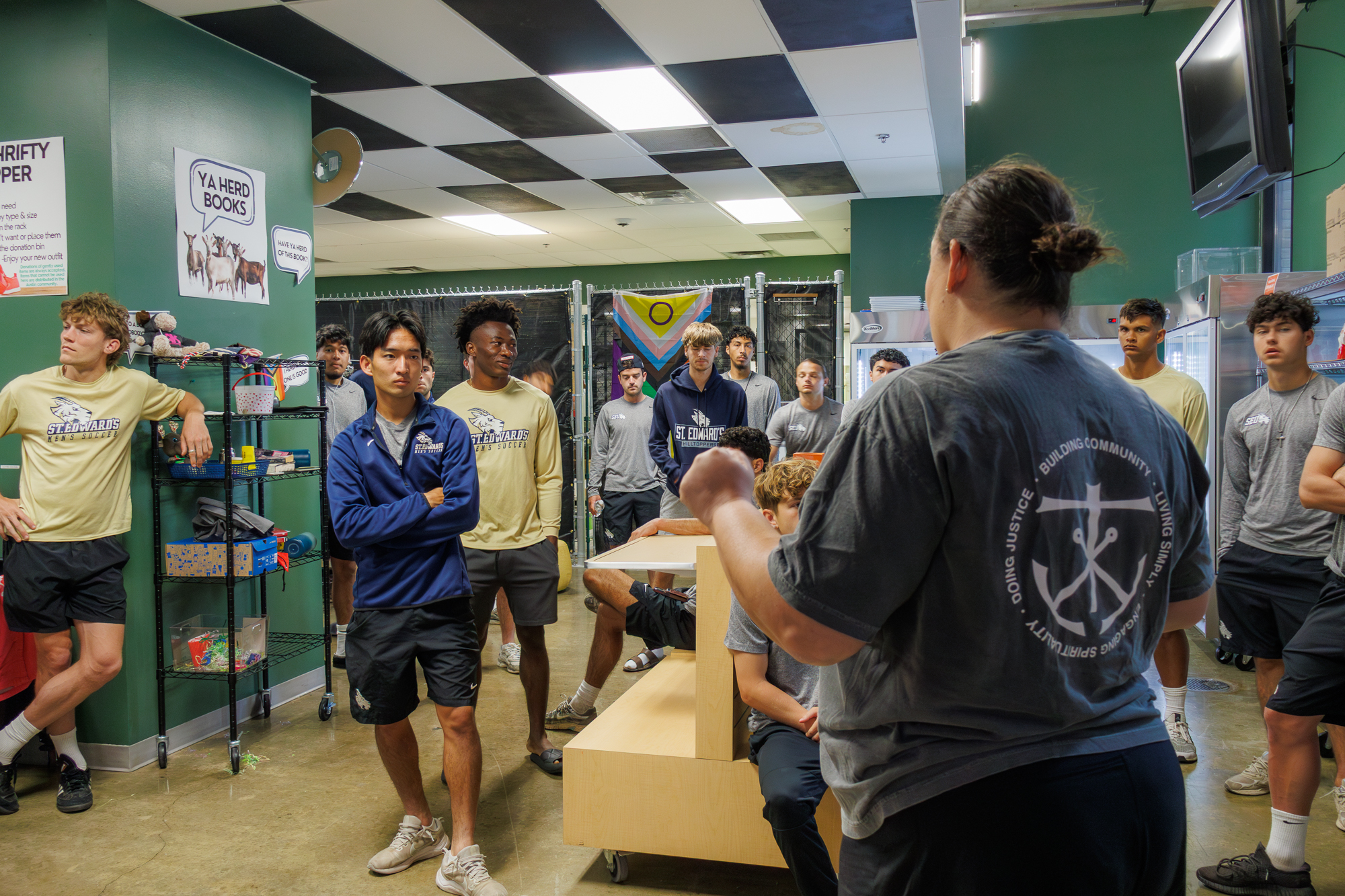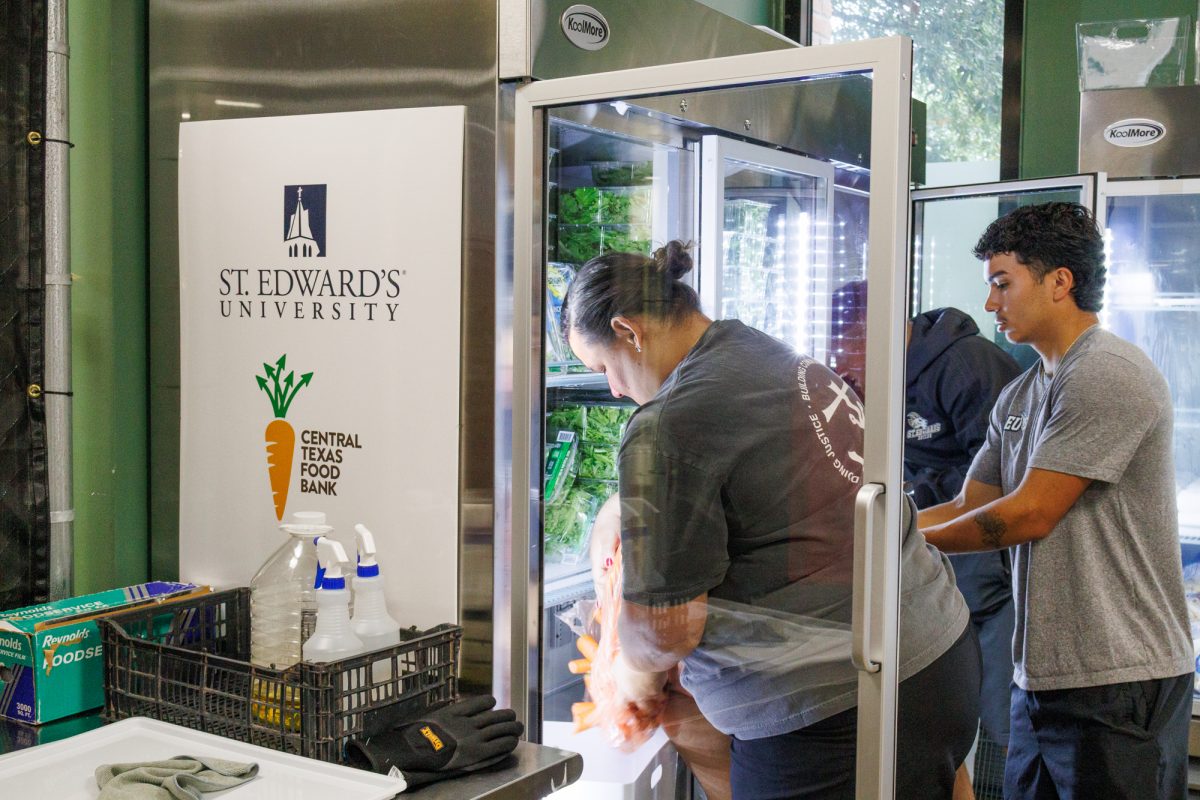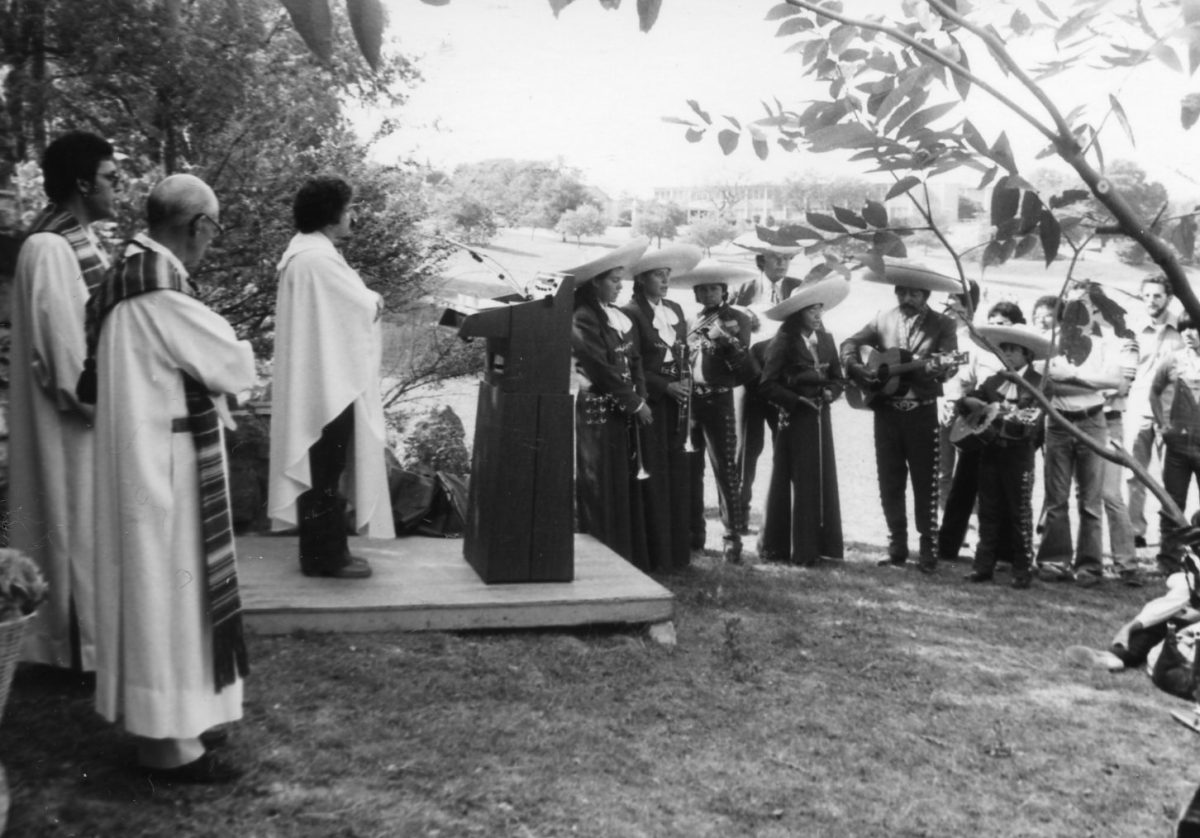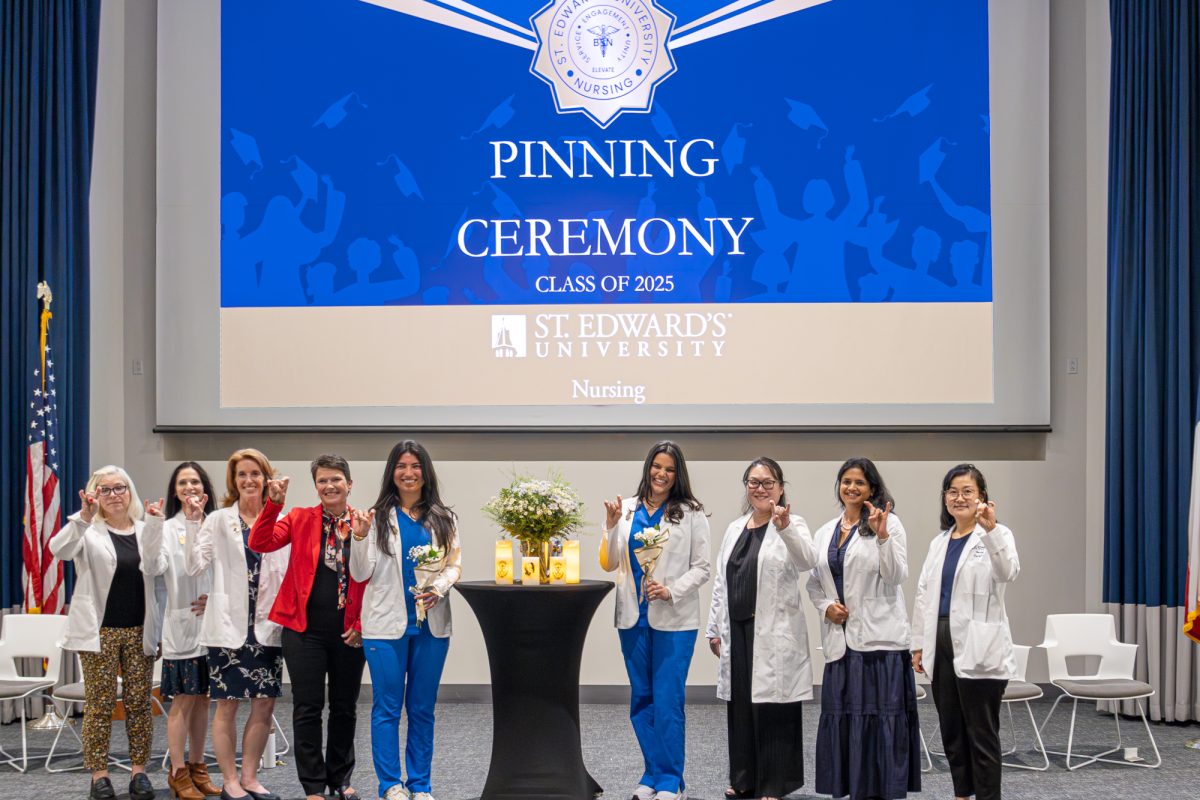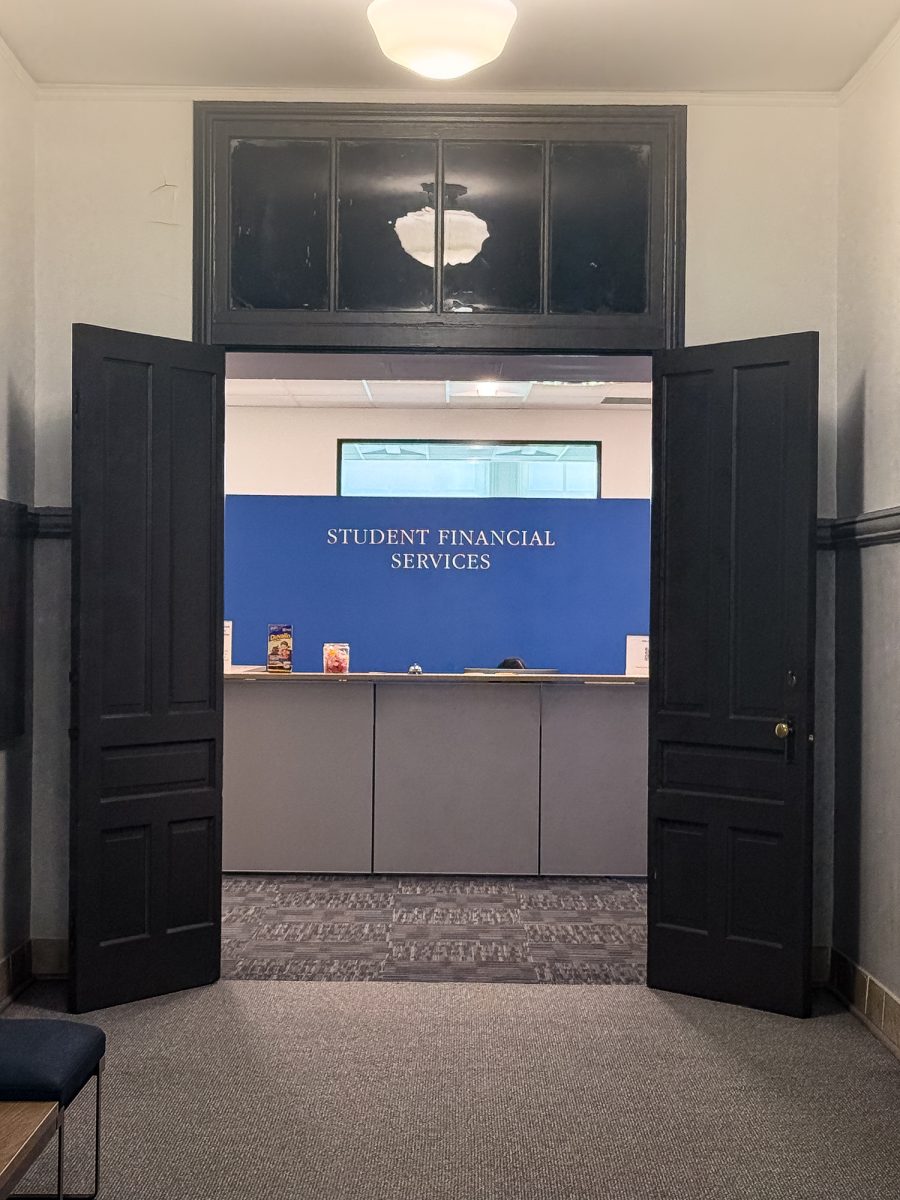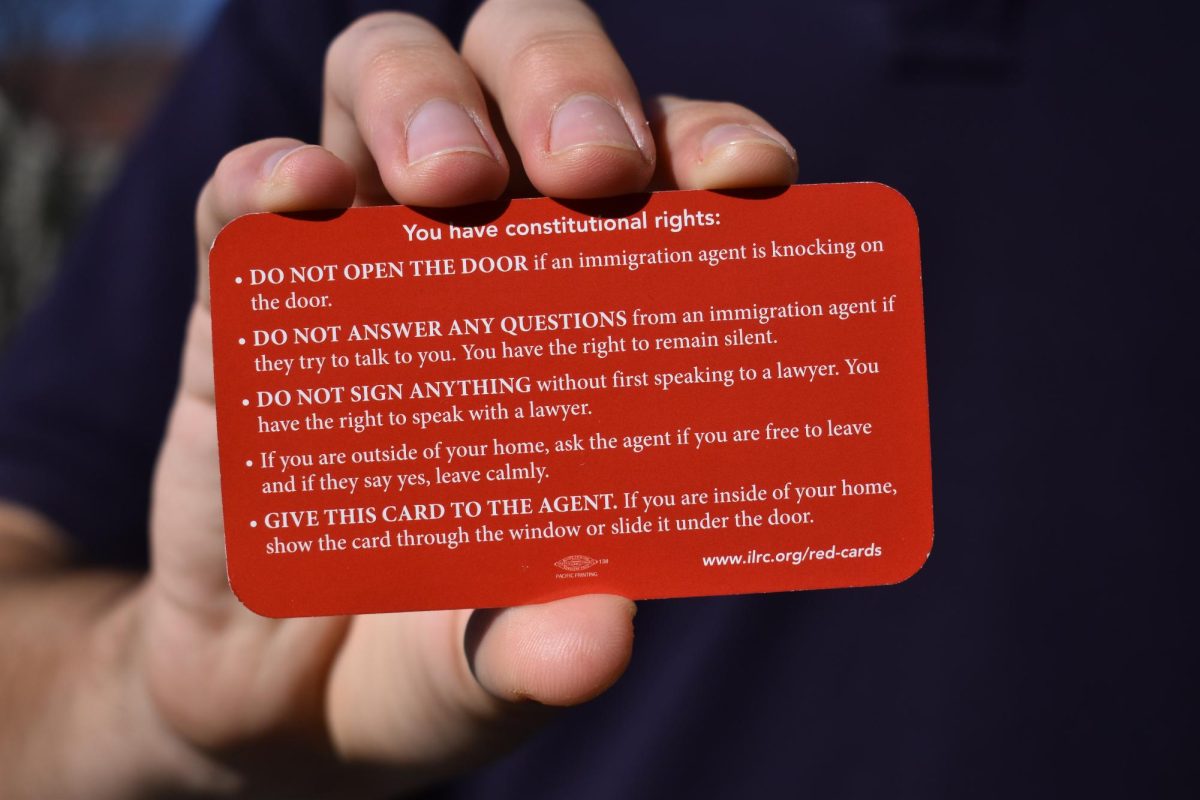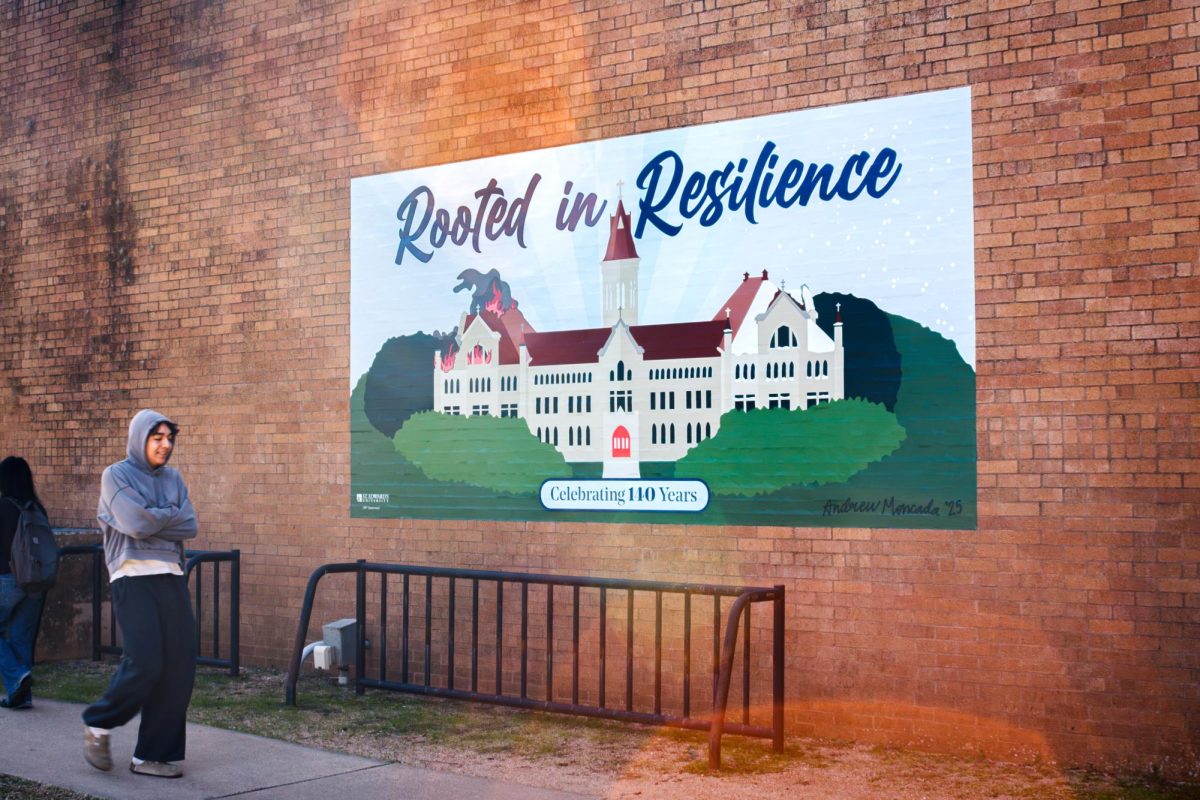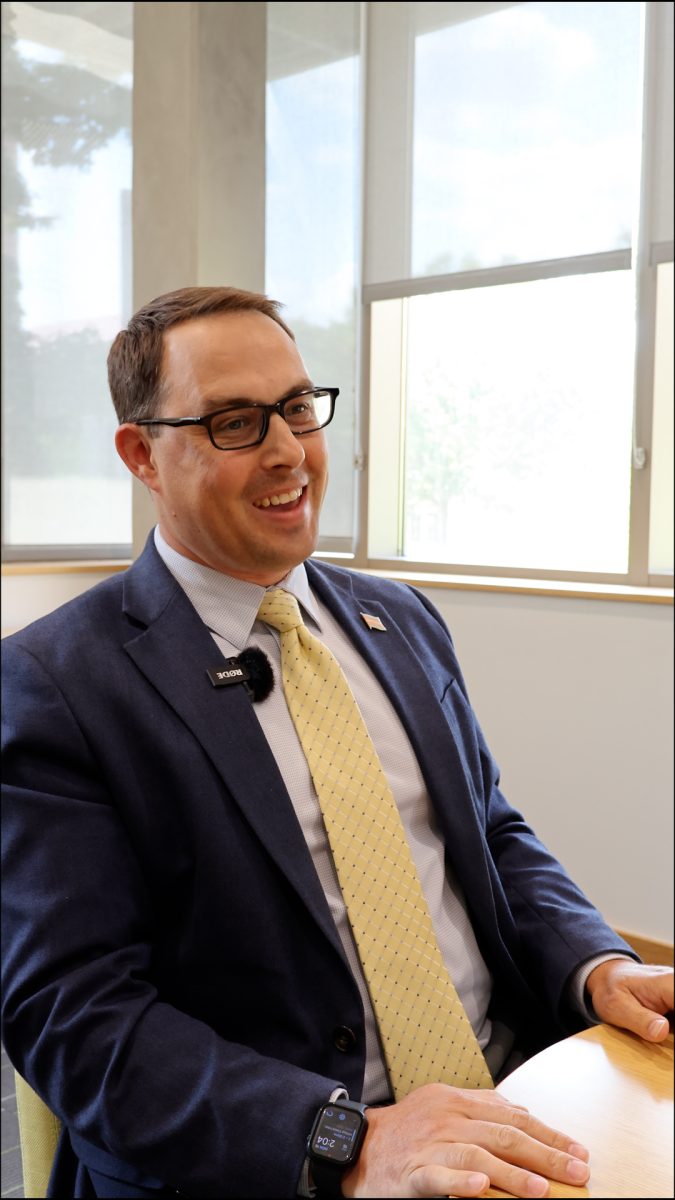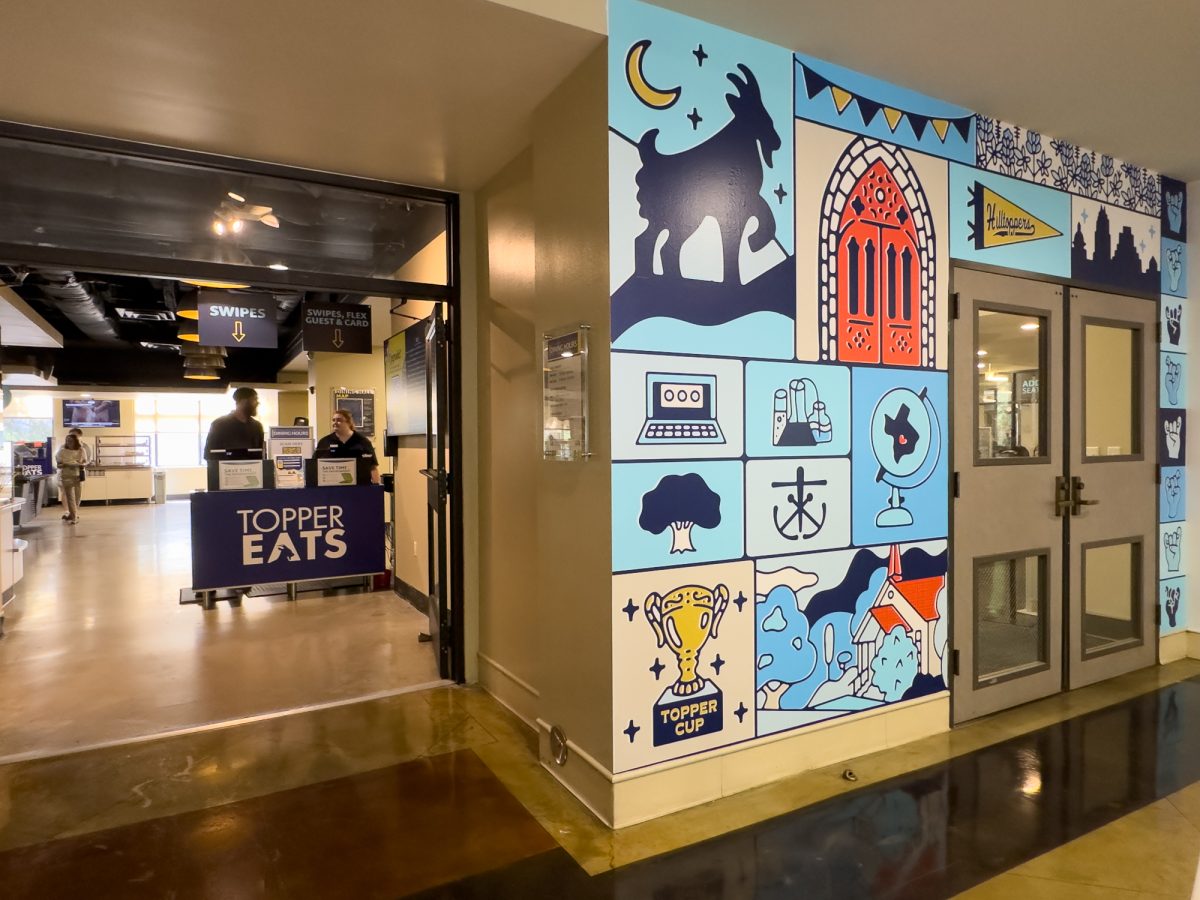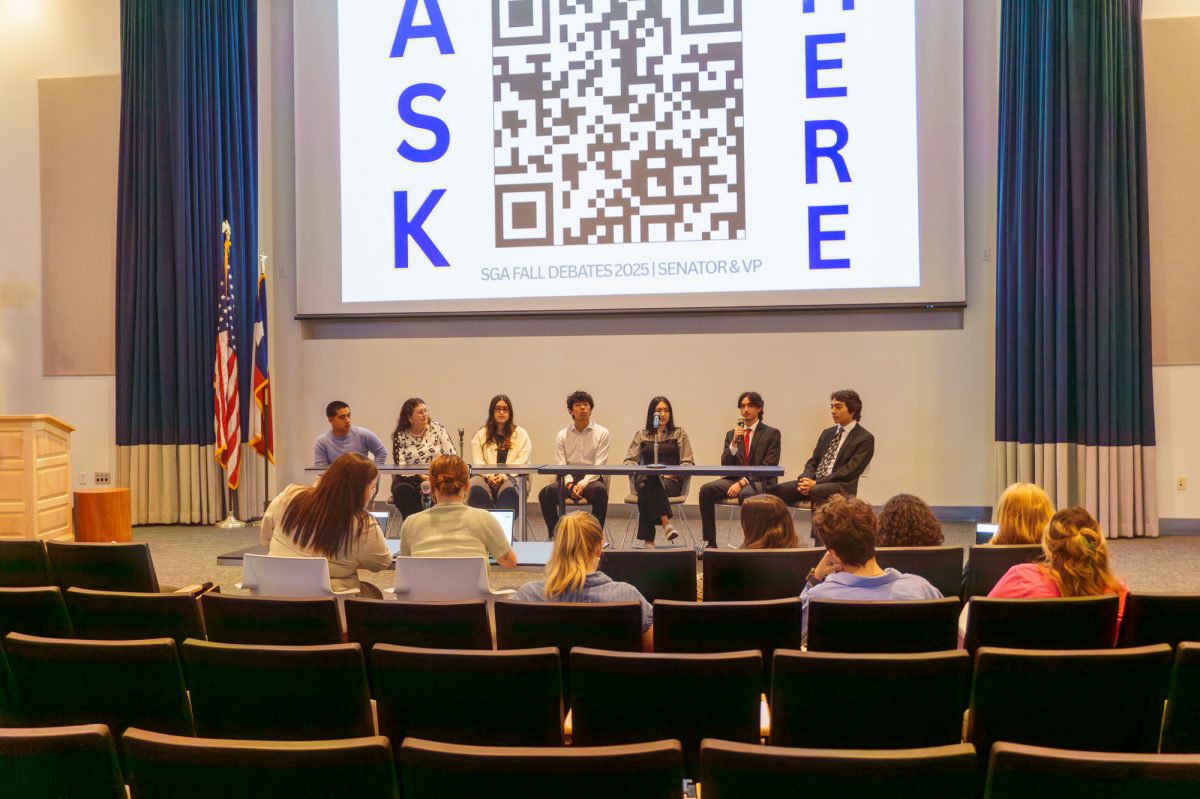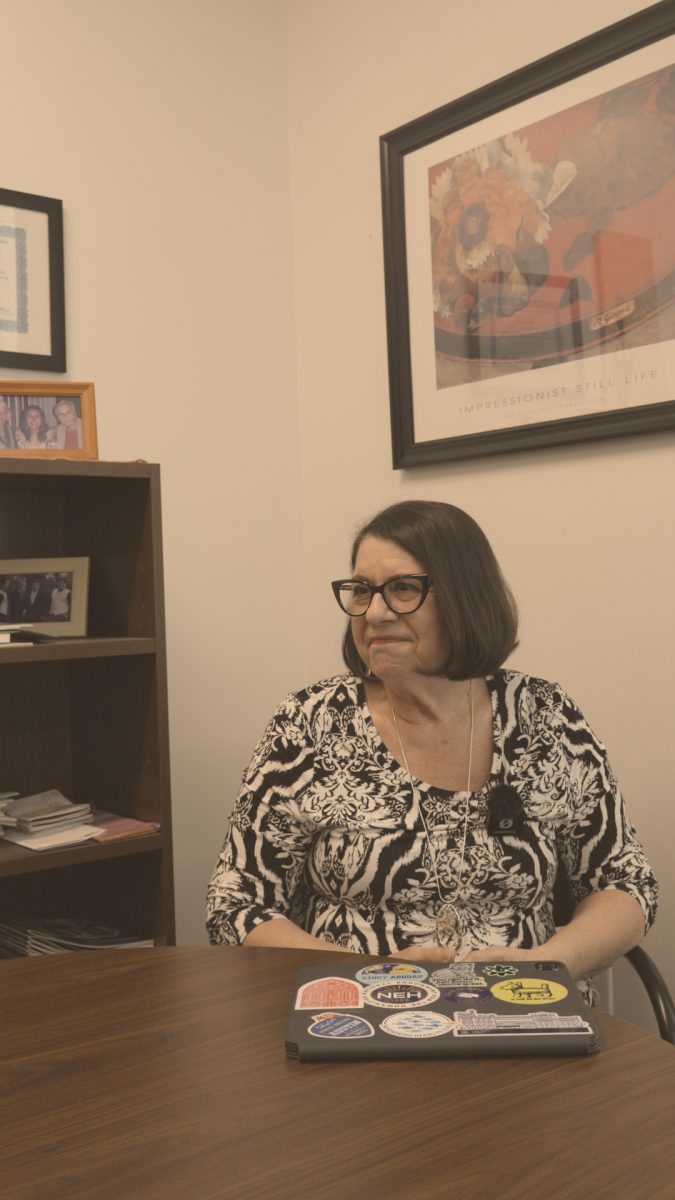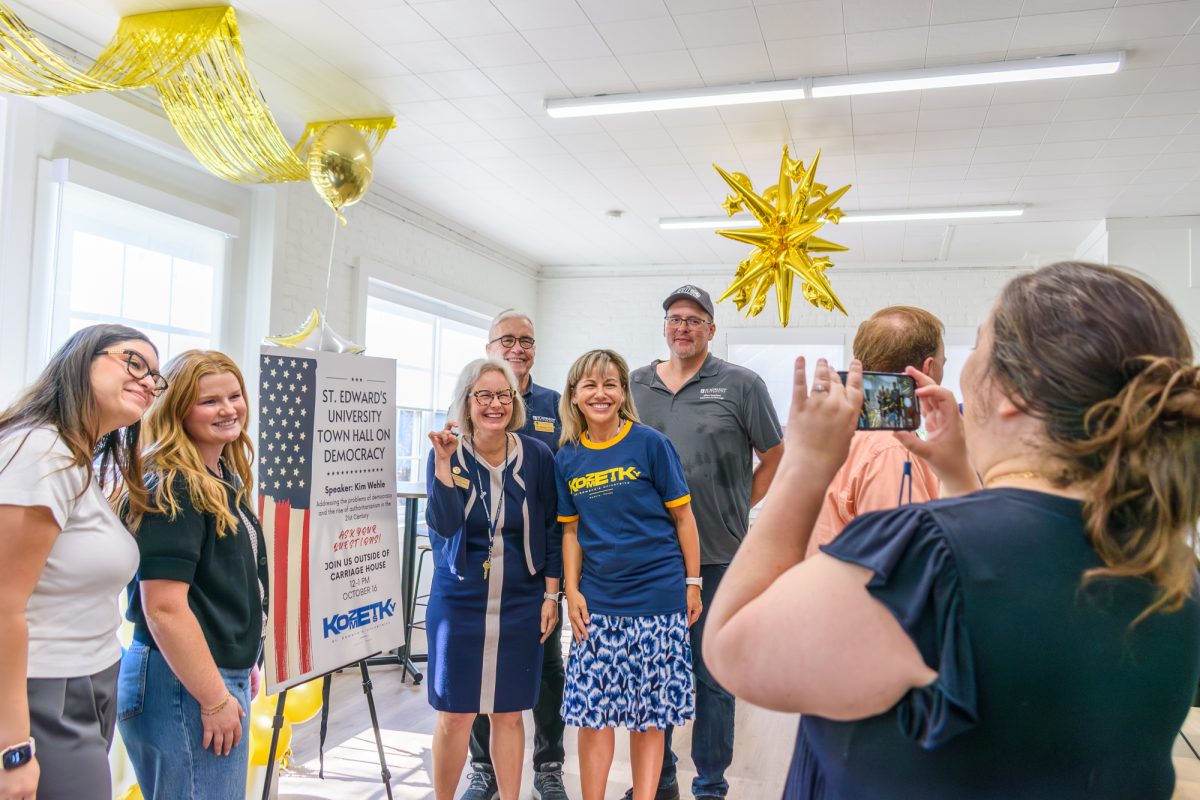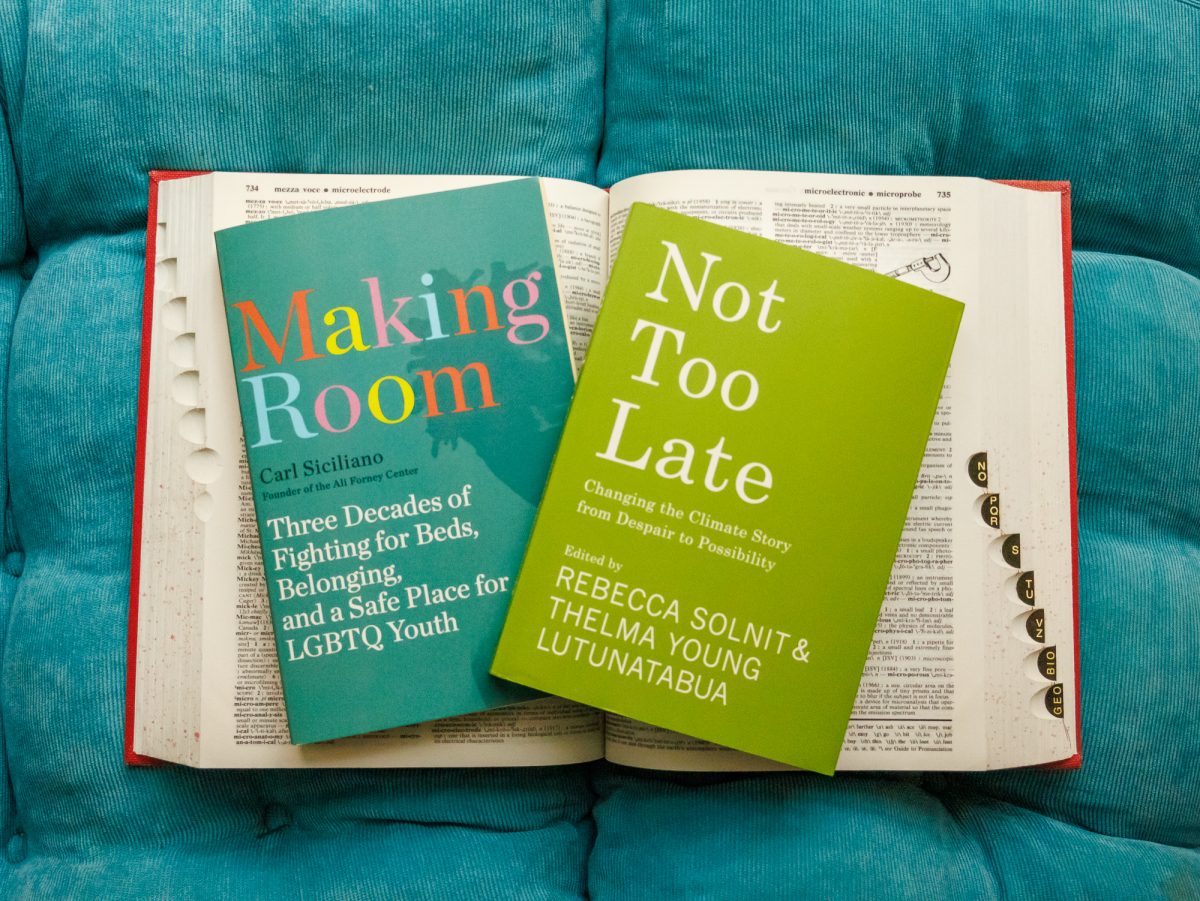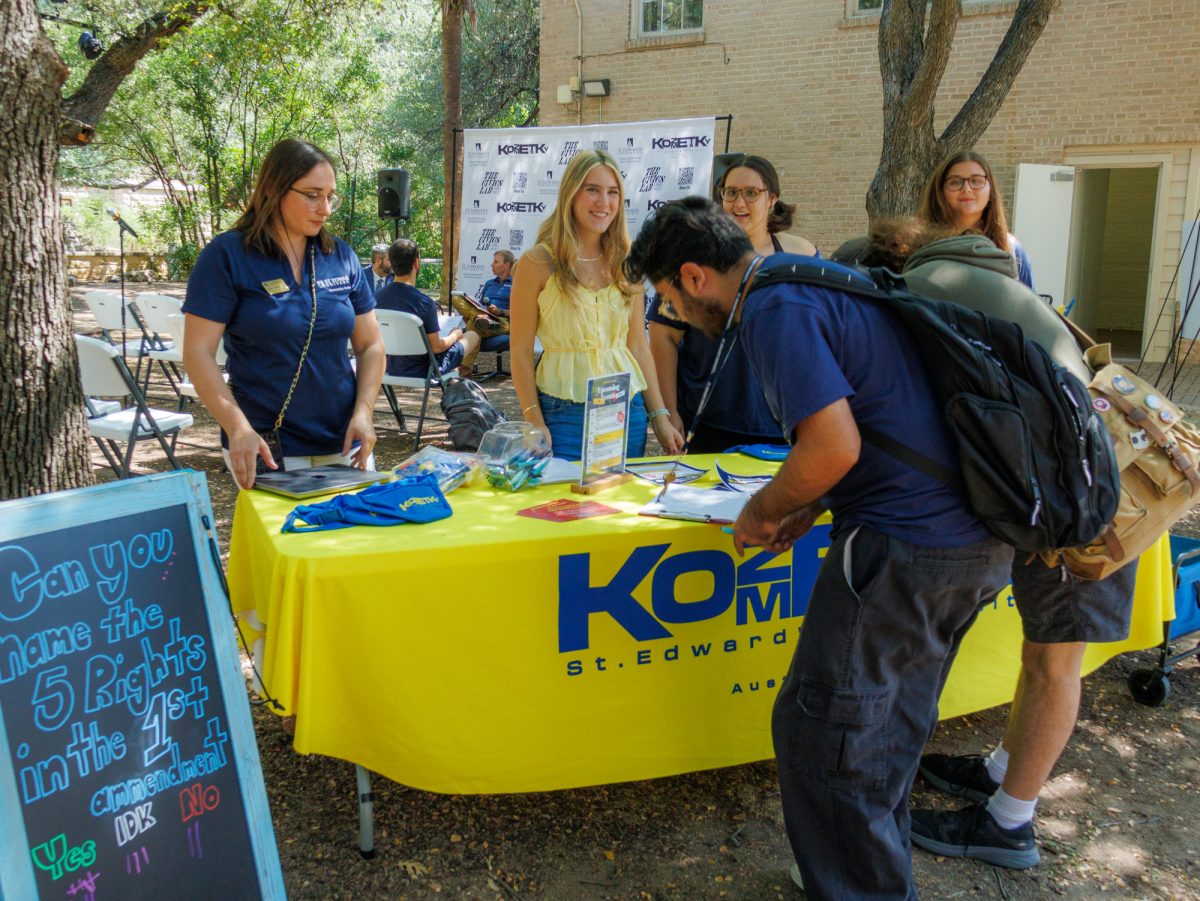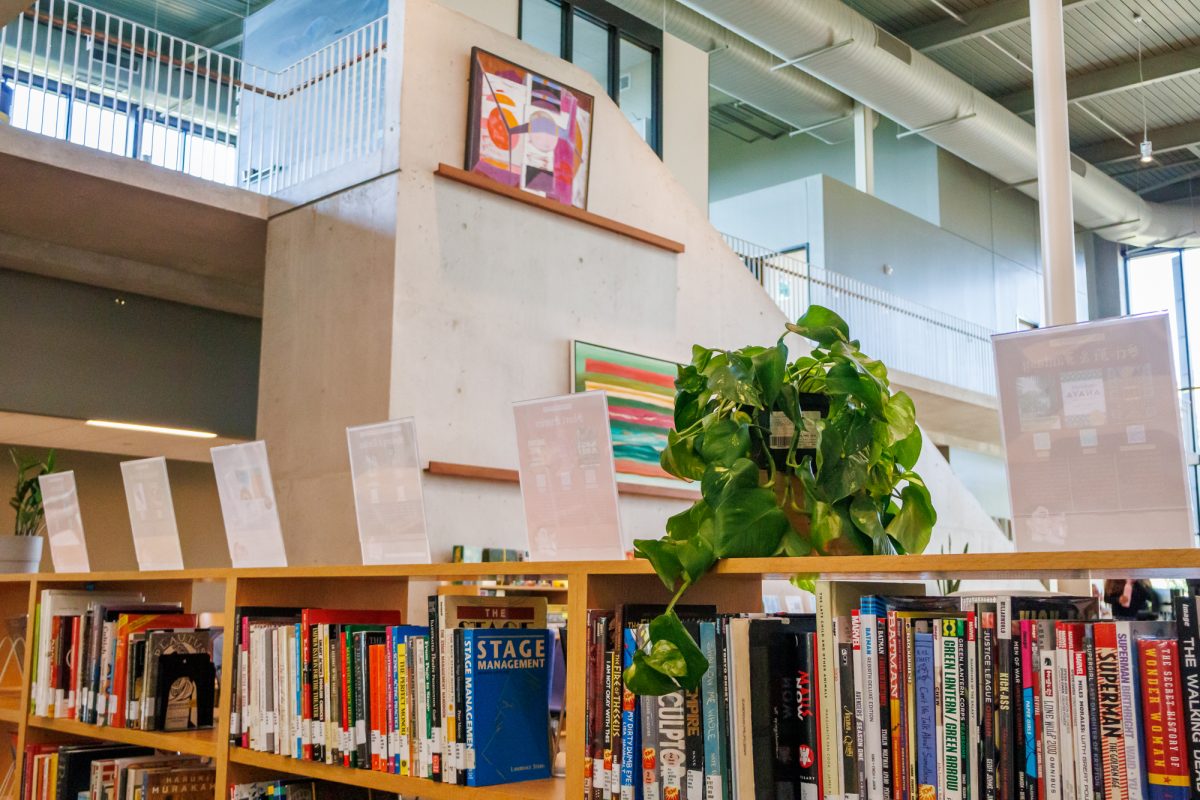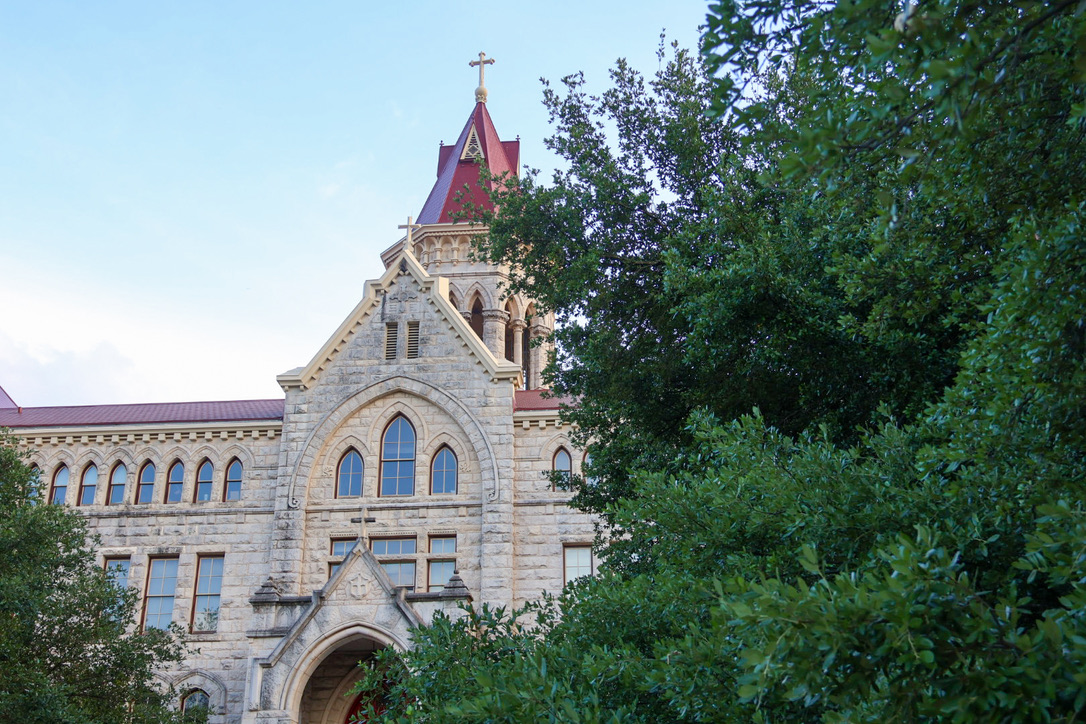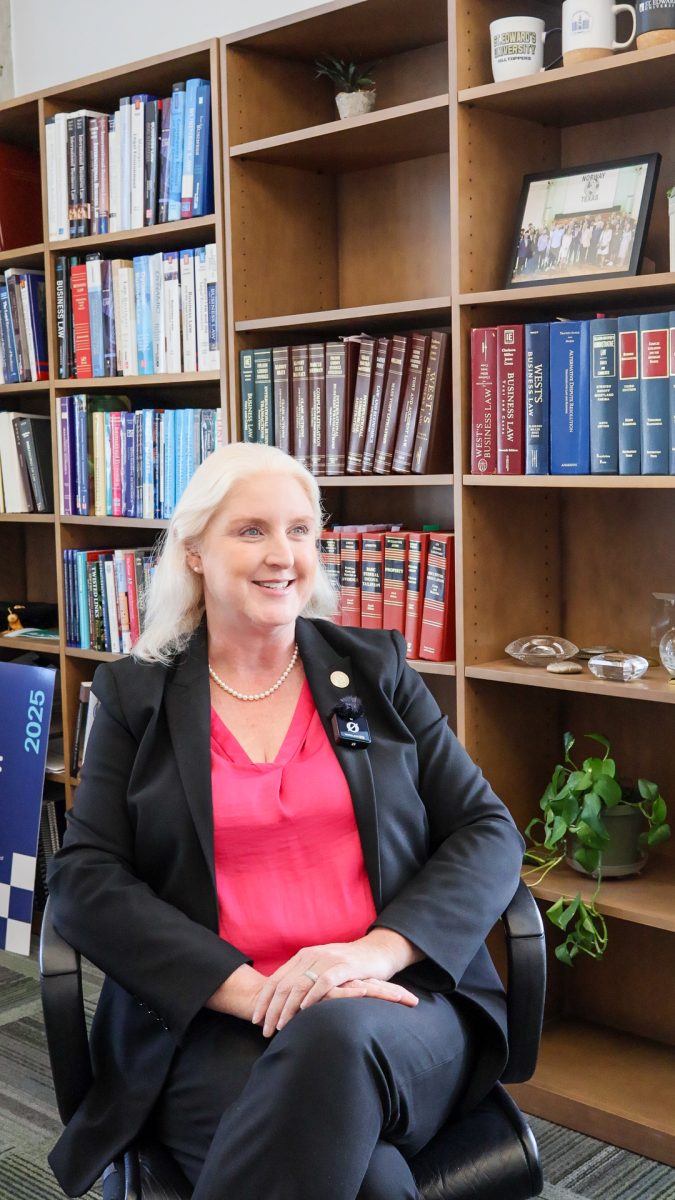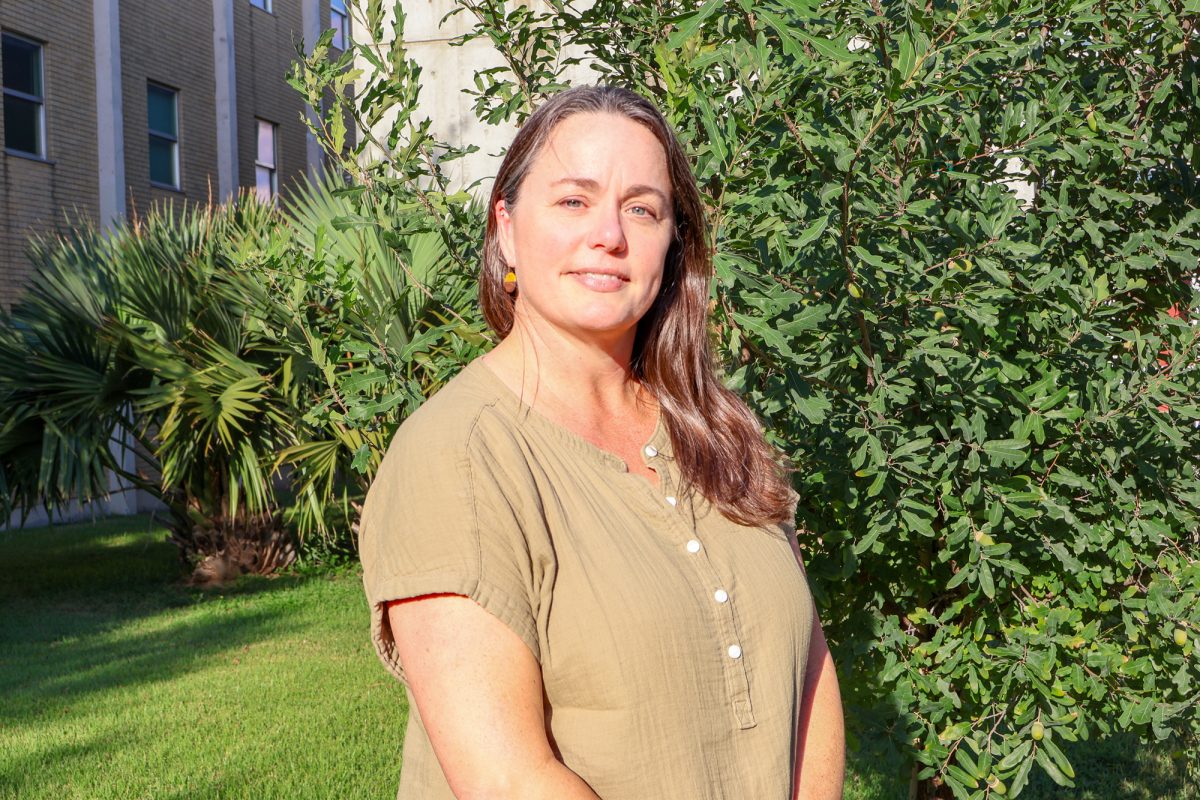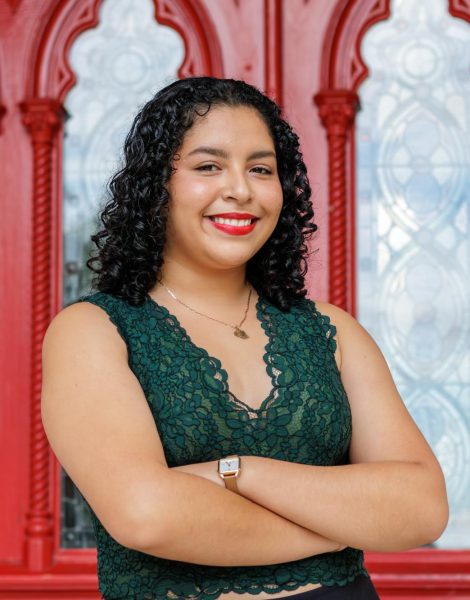Every Tuesday morning, volunteers move pallets of food on the ground floor of LeMans Hall into The Huddle to stock the shelves and fridges. The Monarchs Food Pantry can be found inside, full of food staples, produce, meats and snacks. One by one, The Huddle becomes filled with smiles as volunteers work together knowing their community will benefit for the week from this resource. When the task is complete and the shelves are packed, people eagerly wait in a line outside ready to enter and see what is new.
What started out as a cabinet in the John Brooks Williams Science Center – South building in the student lounge grew into a room on the third floor of Premont Hall when Campus Ministry partnered with Monarchs on the Hilltop to sponsor a physical location. The pantry was able to fill the space through the homecoming service project and opened on March 6, 2020 — but promptly closed due to the COVID-19 pandemic.
“Food insecurity absolutely is something that plagues every college and university, and it’s something that we have very little data on actually,” Liza Manjarrez, senior associate director of Campus Ministry, said.
Current available data regarding food insecurity in colleges and universities comes from the U.S. Government Accountability Office, which estimates that 23% (3.8 million) of college students experienced food insecurity in 2020. Most food-insecure students (2.2 million) had very low food security, meaning they were often skipping meals or eating less due to financial constraints. Compared to the rest of the country, the U.S. Department of Agriculture estimates that 13.5% (18.0 million) of U.S. households were food insecure at some time during 2023, which was significantly higher than the 12.8% (17.0 million) in 2022.
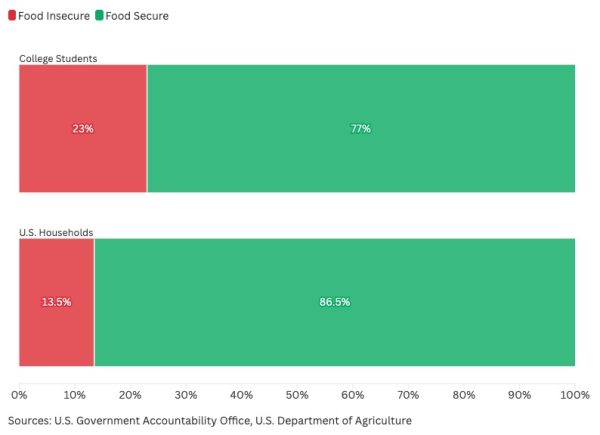
“People anecdotally would say ‘I was participating in events on campus or with organizations on campus based on whether or not they’d have food because that’s how I was feeding myself,’” Manjarrez said.
The Monarch Food Pantry started out as an emergency food pantry, but now the door into The Huddle gets opened between 1,100 and 1,900 times a month, according to Manjarrez. The Huddle is open to the St. Edward’s University community 24 hours a day, seven days a week. To enter, people must scan their ID card to unlock the door.
“We are a no-boundary pantry,” Manjarrez said. “The only boundary that we have is that you have to be part of our community, but other than that, you don’t have to qualify. It’s completely on your honor system. Some of the other pantries have a limit of how much you can take of certain items. So they’ll say ‘You can have a total of 15 pounds of food, 30 pounds of food,’ and they’ll weigh it in and out. We don’t do any of that. There’s pros and cons to every approach, but we have just decided to leave it up to the community to self-regulate.”
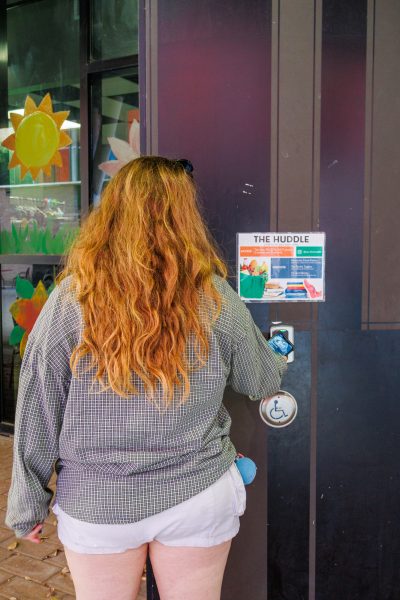
The Thrifty Topper, an area for free clothing and houseware, and Ya Herd Books, a free community lending library, are located on the left side of The Huddle. Faculty, staff and students can make use of the space by making donations or utilizing the resources available themselves.
“It is a really good example of a mutual aid project, so I appreciate it as a place that I can send my students,” Alex Barron, associate professor of literature, said. “I can say, ‘Hey, I just want everyone to know whether you left your lunch at home today and you have (food), but you don’t have something with you today, or whether you’re going through a severe crisis of food insecurity — you can go there.’”
As students are looking for professional clothing for interviews or internships, The Thrifty Topper is a resource available to them on campus. Community members are able to donate gently-used clothes and shoes for others to use.
“I have even found clothes that I can use at interviews, and I just see it as very helpful, whereas going to Goodwill, I haven’t been able to find my exact size sometimes, or it’s just very overwhelming,” sophomore and psychology major Arlis Guerrero said. “In The Huddle, it’s just like, you go in, go about your business, and no one’s bothering you, no one’s questioning you.”
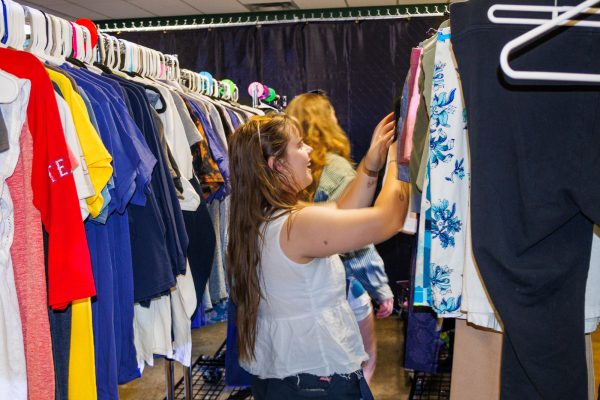
According to the National Center for Education Statistics, 40% (1,093) of undergraduate students at St. Edward’s received Pell Grants and 94% (2,611) received some sort of grant or scholarship aid in the 2022-2023 school year. A Pell Grant is a federal grant that provides financial aid to eligible undergraduate students with low or moderate income. Unlike a loan, students do not need to repay a Pell Grant.
“I think some faculty are like, ‘Why do our students need this?’” Manjarrez said. “‘It seems really interesting and unreasonable to us that our students would need this level of support.’ Then when I quote Pell Grant numbers, they’re like, ‘Oh, got it. I didn’t realize.’ Or when we talk about our discount rate or how many students are here on scholarships, I think that gives a bit more perspective.”
Currently, The Huddle can back stock a lot of things, but does not have “an endless amount of space.” They do not receive any funding from the university directly, and must apply for grants for monetary resources. However, The Huddle is now an agency of the Central Texas Food Bank, and receives shipments from them every Tuesday morning. In past semesters, The Huddle received food shipments on a biweekly basis. Manjarrez, along with a couple of students, volunteer their time to help restock.
“We would love to be able to restock midweek, but currently we don’t have people who work there,” Manjarrez said. “We have volunteers through the SERVE Austin program who take a shift, and right now we have a person in there every single day of the week. If we were to be able to have multiple people in there, then we could hold products back and put them out throughout the week. So there wouldn’t be this need to rush there on Tuesdays, or if you don’t come to campus on Tuesdays that you would miss out on some of the ‘good things.’ We would love to be able to do that, but currently it’s hard enough for us to get volunteers to help us with our Tuesday deliveries.”
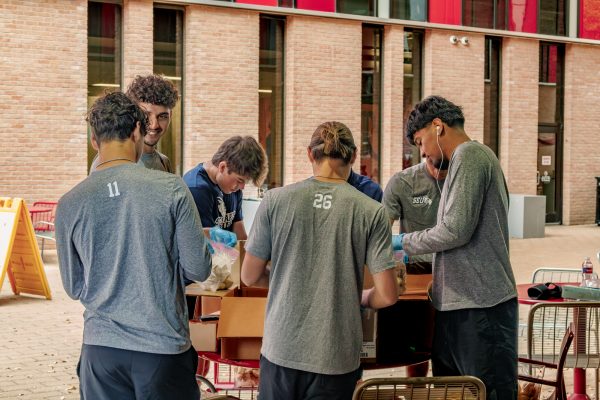
The Central Texas Food Bank receives funding from the U.S. Department of Agriculture, who cut half a billion in funding for food purchasing programs in early March, reported KXAN. This resulted in the Central Texas Food Bank losing $5.5 million in funding for the upcoming fiscal year. However, it is not yet known how this will affect shipments toward The Huddle.
In December 2024, the new H-E-B on South Congress Avenue donated $10,000 to The Huddle. The plan is to use part of these funds to offer life-skills and cooking classes to help better utilize the items The Huddle receives. Another part of the money will also go to providing kitchen utensils, pots, pans and baking sheets that will be available for checkout at the desks of residence halls.
“We often get raw ingredients,” Manjarrez said. “And then people will say ‘I would love to cook with that, but I don’t have a way to cook with them.’”
At the Dean of Students Office, Connie Rey Rodriguez works with students to understand their needs and supports them by sharing resources on campus or in the community. That might look like walking with them to The Huddle, telling them about the meal plan exchange program toward the end of the semester or directing them to the findhelp.org website.
Other campus resources the Dean of Students Office collaborates with include:
- Student Success Center
- Career and Professional Development
- Health and Counseling Center
- Student Disability Services
- Residence Life
- Rec Well
- Campus Ministry
- Student Financial Services
- University Police Department
- Faculty
“I don’t want a student to worry,” Rodriguez said. “I don’t want a faculty member, I don’t want a staff member, I don’t want a community member to be hungry. I want them to have the best possible life. I want them to get the most out of this experience. I want all of that, and when we are able to have a resource like The Huddle for food insecurity to help people, it’s nice.”
While more frequent volunteers are necessary to enact new initiatives at The Huddle, current volunteers are working to meet the needs of the St. Edward’s community. Ways to help include signing up for a shift through SERVE Austin, helping unload shipment on Tuesday mornings, making donations of clothes, shoes and houseware or making monetary donations.
“A lot of things in life are a work in progress, but when you unload all the pallets and when they’re up there and people are using it for that day, one thing is complete,” Rodriguez said. “For that one day, we’re able to help people. For that week, we are able to help as many people that can come in there and get the food. It’s not about me, but it does bring a smile to my face, and it helps me see something that is complete. It helps me see as a community member that everybody’s in there for the students to make sure that they have what they need.”
